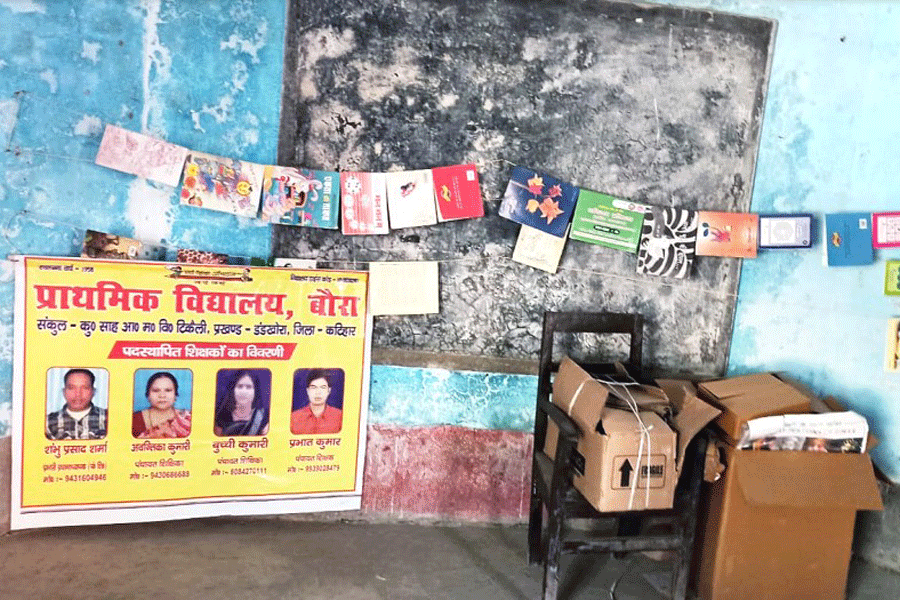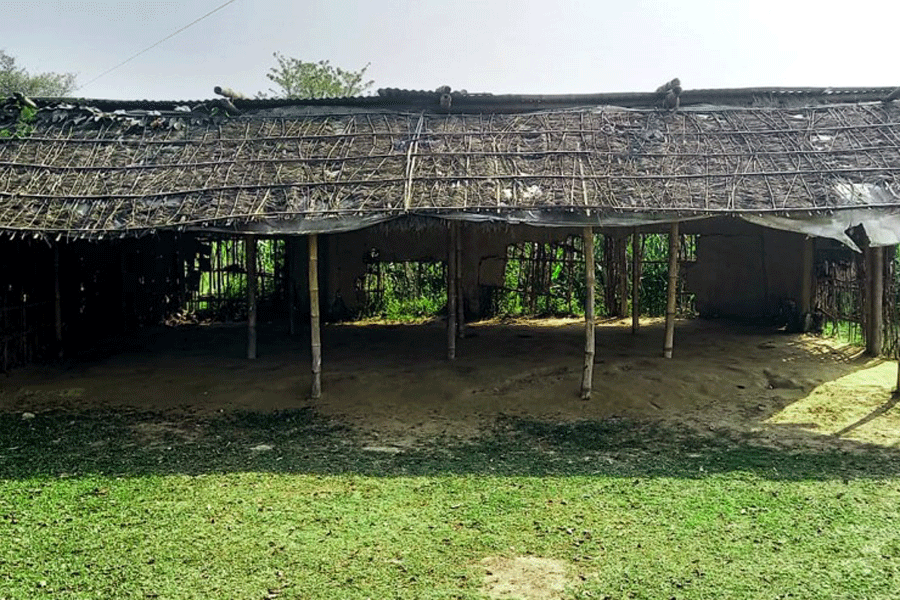Economist Jean Dreze said on Friday that there was a “schooling emergency” in Bihar with just 20 per cent of students attending classes at government primary and upper primary schools.
“The teachers are not there, the quality of education is poor, infrastructure is dismal, the midday meal is of poor quality, and the direct benefit transfer for textbooks and uniforms is a failure,” he said.
Dreze was speaking in Patna on Friday while releasing a survey report, “Where are the kids? The curious case of government schools in Bihar” conducted by the Jan Jagran Shakti Sangathan (JJSS).
He and JJSS secretary Ashish Ranjan have guided the survey that was conducted in 81 randomly selected primary and upper-primary schools in Araria and Katihar districts of Bihar earlier this year to assess the condition of the schooling system and the depth of the post-Covid crisis.
“Only around 20 per cent of the enrolled students were present in the schools on the day the survey was conducted. This is perhaps the lowest in the world. It is a very big crisis. This is not just limited to Araria and Katihar, but is true for the entire Bihar,” Dreze said.
Dreze, who currently resides in Ranchi, lamented that there was no discussion, probe or steps being taken to address the situation on the part of the state government.
Pointing out that education is the key to development, demographic change, social uplift and democracy, the economist said there could be various reasons behind the missing students.
“Some of the possible reasons could be — no teaching happening in the schools, the closure of schools for two years because of Covid-19 could have destroyed the school-going habit of the children, private tuitions, fake enrolment of students, and the strange and inappropriate system of direct benefit transfer (DBT) for books and school uniform that leaves the poor with a cruel choice between basic needs and education,” Dreze added.
Dreze, who is presently an honorary professor at the Delhi School of Economics and a visiting professor at Ranchi University, asserted that people do not come out on their own on schooling issues, but do so and raise their voices when they are made aware of their rights, the rules and the policy.
Pointing to states like Tamil Nadu, Andhra Pradesh, Telangana and Odisha where eggs are given under the mid-day meal scheme daily, Dreze said that in Bihar it was difficult to give it even one day in a week because of resistance from the vegetarian lobby.
The survey pointed out that around two-thirds of the primary schools (Classes I to V) and almost all upper primary schools (Classes VI to VIII) had a pupil-teacher ratio of more than 30, which is the maximum permissible limit under the Right to Education (RTE) Act.
It also noticed that the teachers routinely inflated the attendance of students. Around 90 per cent of the schools don’t have proper boundary walls, playgrounds, and libraries. Around nine per cent of the schools in the sample did not even have a building.

A government primary school in Bihar’s Araria district functioning from a dilapidated hut. The Telegraph
The school closure because of Covid-19 has dealt a major blow to students’ learning as a majority of students in Classes III to V have forgotten to read and write.
As far as the midday meal is concerned, there are several issues including inadequate budget, excessive work burden, multiple and confusing cooking and supply arrangements, and opposition to eggs being given to students.
The survey also found out that the DBT system for textbooks and uniforms was a failure, as many students in the schools did not have books or uniforms either because they did not receive money from the government or because it was used for other purposes.
Arguing against DBT on the occasion, educationist D.M. Diwakar said that textbooks should be made directly available to students instead of money.
“The state government gave textbook printing and supply contracts to people connected with political parties. If the government cannot supply, how can small players supply textbooks?...,” Diwakar said.
According to the survey, government schools seem to be in danger of mass displacement by private coaching centres.










